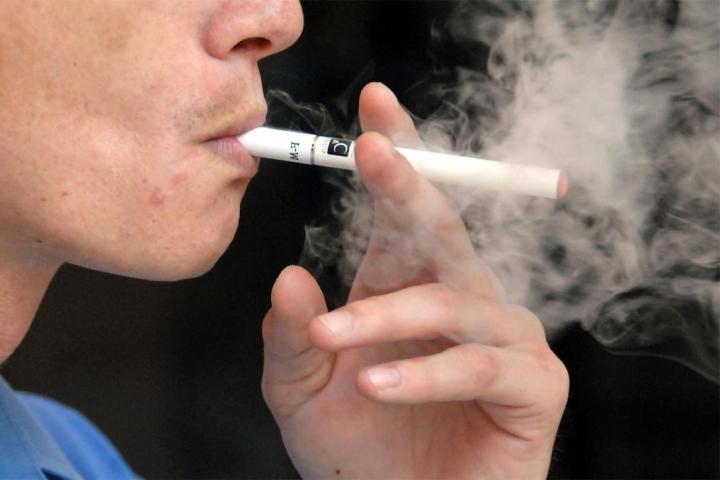
Mentioned by NPR earlier today, the New York City Council has modified the current smoking ban within public places to include electronic cigarettes, devices that emit a steam-like vapor rather than smoke. The decision passed in a 43 to 8 vote, thus e-cigarettes will not be allowed in bars, restaurants, office buildings, beaches or other public areas. This means that office workers will have to exit to designated smoking areas in order to use their e-cigarette as opposed to puffing away at their desk. Assuming Mayor Michael Bloomberg signs the bill before leaving office at the end of the year, smoking e-cigarettes will be prohibited in public places after a 120 day waiting period.
For those unfamiliar with e-cigarettes, the device is a long metal tube which contains a nicotine-infused liquid. The liquid comes in traditional flavors such as menthol as well as a varied range of flavors that include different types of fruit, chocolate, coffee, bacon, bubble gum, cinnamon, maple syrup and Coca-Cola. When a smoker takes a puff of the e-cigarette, the liquid in the device is heated and a vapor is pushed out on the opposite end of the device. However, since the vapor doesn’t contain the tar found in regular cigarette smoke, it’s thought to be less harmful than traditional cigarettes.
When considering the ban on e-cigarettes, the New York City Council was concerned that not enough research has been done on the effects of the vapor emitted from the device. Members of the council were also concerned that the use of e-cigarettes in areas that banned traditional cigarettes would undermine the enforcement of the original law. In other words, authorities would have to spend time checking to see what type of cigarette is being smoked when attempting to discourage the smoking of traditional cigarettes.

Proponents of e-cigarettes are concerned that this could trigger a domino effect in states that strictly regulate traditional cigarettes. Speaking in favor of e-cigarettes, former Surgeon General Richard Carmona sent a letter to the council which stated “I’m extremely concerned that a well-intentioned but scientifically unsupported effort like the current proposal to include electronic cigarettes in New York’s current smoking ban, could constitute a giant step backward in the effort to defeat tobacco smoking.” However, it’s important to note that Carmona is also a board member for NJOY, a popular manufacturer of electronic cigarettes.
While more study is likely needed to determine the long-term health effects of the e-cigarette vapor, a medical study published in The Lancet during September 2013 found that the use of e-cigarettes was just as effective as nicotine patches when attempting to quit smoking and there were few adverse effects.
Interestingly, New York City recently changed the age law that restricts the purchase of all tobacco products to people under 18 and increased that age limit to 21. While that policy has yet to take effect in the the city, it’s going to to be one of the strictest age limits in the entire country. However, New York City wasn’t the first area of the United States to ban e-cigarette smoking in public places. Utah, North Dakota and New Jersey have already put statewide bans in place and Boston has banned the use of the device within the workplace.


